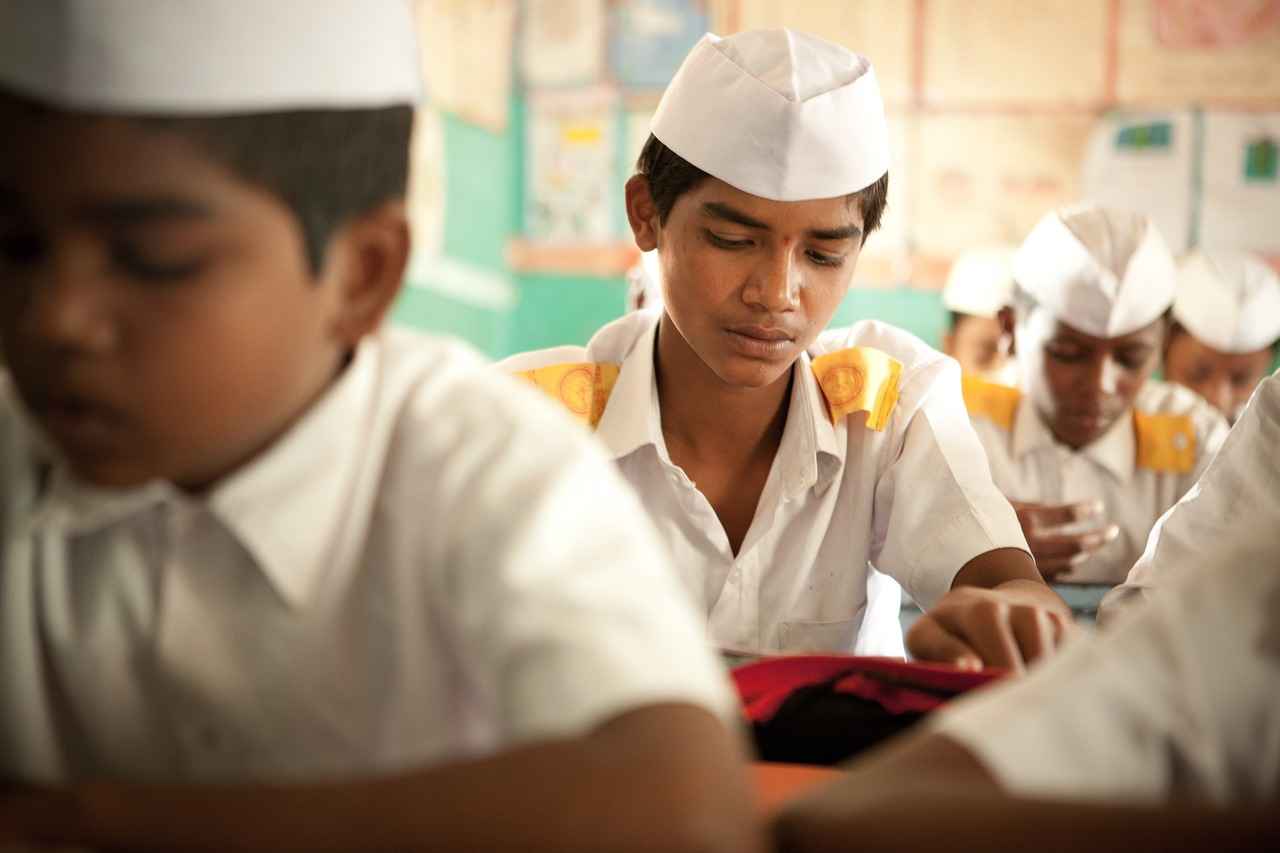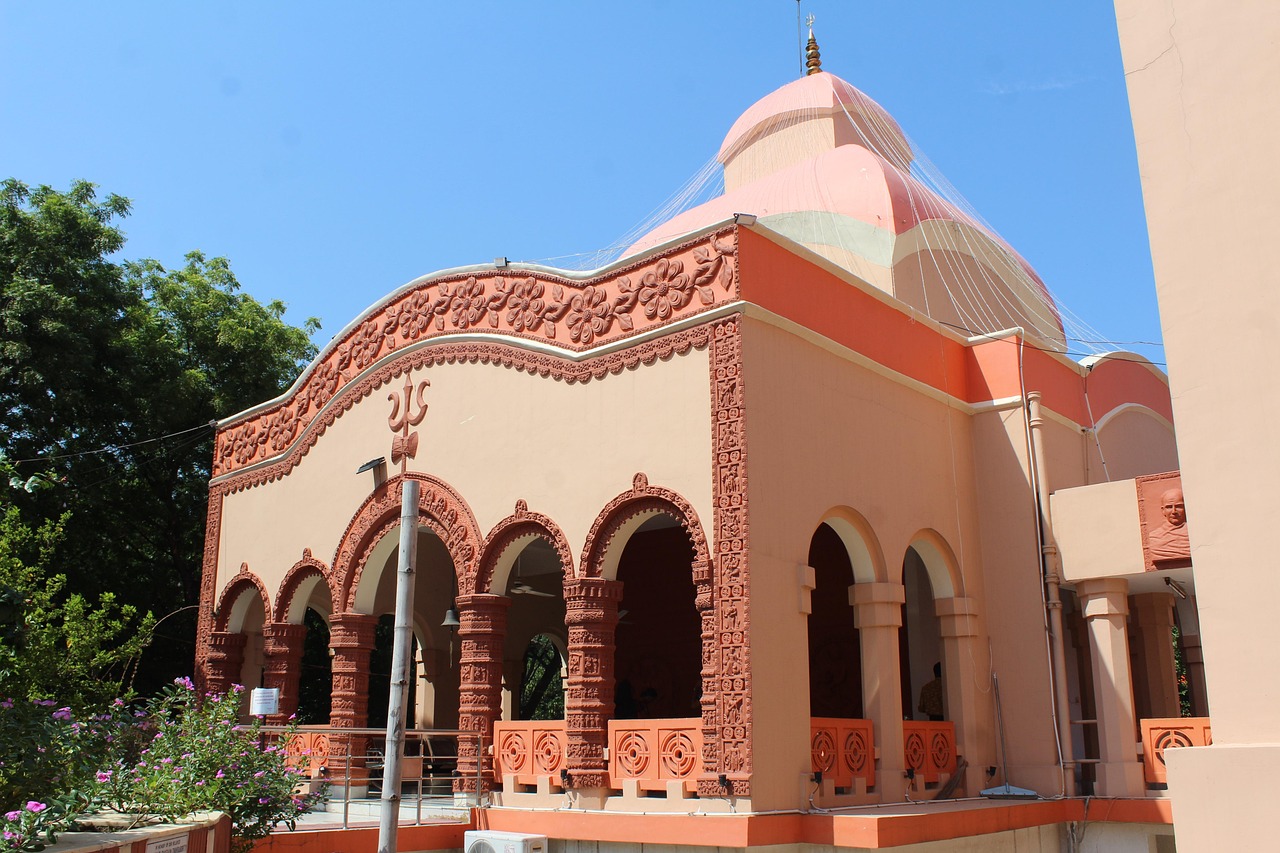This article provides a comprehensive overview of the West Bengal Council of Higher Secondary Education (WBCHSE), covering its functions, structure, and significance in the educational landscape of West Bengal.
Introduction to the West Bengal Council of Higher Secondary Education
The WBCHSE plays a pivotal role in the education system of West Bengal, overseeing higher secondary education and ensuring quality standards. Established to foster educational excellence, the council serves as a regulatory body that enhances the academic framework for students across the state.
History and Establishment of WBCHSE
Founded in 1975, the WBCHSE was created to regulate and develop the higher secondary education system in West Bengal. Its establishment marked a significant step towards improving educational standards and accessibility for students.
Key Milestones in WBCHSE’s Development
- Introduction of various educational reforms.
- Expansion of the curriculum to meet modern educational needs.
- Implementation of technology in education.
Structure and Governance of WBCHSE
The governance of WBCHSE is structured to ensure effective administration. It involves various committees and educational professionals who work collaboratively to oversee the quality of higher secondary education.
Functions and Responsibilities of WBCHSE
WBCHSE’s primary functions include:
- Curriculum development.
- Conducting examinations.
- Ensuring the quality of education provided by affiliated schools.
Impact of WBCHSE on Students and Society
The council significantly influences students’ academic and professional futures, contributing to the overall development of society by promoting quality education and skill development.
Conclusion: The Role of WBCHSE in Educational Excellence
In conclusion, the West Bengal Council of Higher Secondary Education plays an essential role in shaping the educational landscape of West Bengal, striving for excellence and inclusivity in higher secondary education.

Introduction to the West Bengal Council of Higher Secondary Education
The West Bengal Council of Higher Secondary Education (WBCHSE) is a crucial entity in the educational framework of West Bengal, responsible for overseeing and enhancing higher secondary education in the state. Established in 1975, it aims to ensure that students receive quality education through well-structured curricula and standardized assessments.
This council is not just an administrative body; it plays a pivotal role in shaping the educational landscape by implementing various reforms and initiatives. By focusing on both academic excellence and the overall development of students, WBCHSE contributes significantly to the educational journey of countless individuals.
One of the primary functions of WBCHSE is curriculum development. The council regularly updates the syllabus to incorporate modern educational practices and meet the diverse needs of students. This ensures that learners are not only well-versed in theoretical knowledge but also equipped with practical skills necessary for their future endeavors.
Moreover, WBCHSE is responsible for conducting examinations, which are critical in assessing students’ understanding and readiness for higher education. The council meticulously manages the examination process, from the creation of question papers to the declaration of results, ensuring transparency and fairness throughout.
Another vital aspect of WBCHSE’s role is the affiliation of schools. Schools wishing to offer higher secondary education must undergo a rigorous evaluation process to ensure they meet the council’s standards. This affiliation not only enhances the credibility of the schools but also guarantees that students receive a consistent and high-quality education.
In addition to its administrative functions, WBCHSE actively engages with the community to promote educational initiatives. By organizing awareness programs and workshops, the council fosters a culture of learning and development, benefiting both students and society at large.
Looking ahead, WBCHSE faces the challenge of adapting to the rapidly changing educational landscape, particularly in integrating technology into learning. However, these challenges also present opportunities for innovation and improvement, ensuring that the council continues to fulfill its mission of providing excellence in education.
In conclusion, the West Bengal Council of Higher Secondary Education is a cornerstone of the educational system in West Bengal, dedicated to ensuring quality and accessibility in higher secondary education. Through its various functions and initiatives, it plays an essential role in preparing students for their future careers and contributing to the overall development of society.

History and Establishment of WBCHSE
Established in 1975, the West Bengal Council of Higher Secondary Education (WBCHSE) was created with a mission to regulate and develop the higher secondary education system in West Bengal. Its formation marked a significant turning point in the educational landscape of the state, aimed at enhancing educational standards and improving accessibility for all students.
The council was established in response to the growing need for a structured educational framework that could cater to the diverse needs of students in the region. Prior to its inception, the higher secondary education system faced numerous challenges, including inconsistent quality across different institutions and a lack of standardized curricula. The formation of WBCHSE aimed to address these issues by implementing a unified system that would ensure quality education across all affiliated schools.
In its early years, the council focused on developing a comprehensive curriculum that would not only meet the educational requirements of the time but also prepare students for future challenges. This involved incorporating various subjects that aligned with both academic and vocational training, thereby broadening students’ horizons.
Over the years, WBCHSE has introduced several key reforms and initiatives, such as:
- Regular updates to the curriculum to include contemporary subjects and teaching methodologies.
- The establishment of examination protocols that ensure fairness and transparency in the assessment process.
- Collaboration with educational institutions to enhance teacher training and professional development.
As the council continues to evolve, it remains committed to its foundational goals of improving educational standards and making quality education accessible to all students in West Bengal. The ongoing efforts of WBCHSE are crucial in shaping the future of higher secondary education in the state, ensuring that it meets the needs of a rapidly changing world.
Key Milestones in WBCHSE’s Development
Since its inception in 1975, the West Bengal Council of Higher Secondary Education (WBCHSE) has made remarkable strides in transforming the educational landscape of West Bengal. The council has been at the forefront of numerous educational reforms aimed at enhancing the quality of higher secondary education.
- Introduction of Educational Reforms: The WBCHSE has introduced several reforms that focus on modern pedagogical methods, aiming to improve student engagement and learning outcomes. These reforms include a shift towards student-centered learning and the incorporation of project-based assessments.
- Expansion of Curriculum: Recognizing the need for a curriculum that meets contemporary educational demands, the WBCHSE has expanded its syllabus to include a variety of subjects, such as Information Technology, Environmental Studies, and Life Skills Education. This diversification ensures that students are well-prepared for the challenges of the modern world.
- Incorporation of Technology: In recent years, the council has embraced technology by integrating digital tools into the classroom. This initiative not only enhances the learning experience but also equips students with essential skills for the digital age.
- Focus on Teacher Training: Understanding that effective teaching is crucial for student success, WBCHSE has implemented comprehensive training programs for educators. These programs aim to update teachers on the latest teaching methodologies and subject knowledge.
- Assessment and Evaluation Improvements: The council has revamped its examination processes to ensure transparency and fairness. This includes the introduction of online examination systems and the use of technology for result management.
These milestones reflect WBCHSE’s commitment to providing quality education and adapting to the ever-evolving educational landscape. As the council continues to innovate, it plays a crucial role in shaping the future of higher secondary education in West Bengal.
Initial Challenges Faced by WBCHSE
In the formative years of the West Bengal Council of Higher Secondary Education (WBCHSE), the organization encountered a myriad of challenges that significantly impacted its ability to function effectively. One of the most pressing issues was the limited resources available to the council, which hindered its capacity to implement necessary reforms and initiatives. The lack of funding and infrastructure posed substantial obstacles in developing a robust educational framework.
Another significant challenge was the need for curriculum development. The existing curricula were often outdated and did not align with the evolving educational standards set forth across India. This misalignment created difficulties for educators and students alike, as the learning materials did not adequately prepare students for higher education or the workforce. The council recognized the urgency of revising and modernizing the curriculum to meet contemporary educational demands.
To address these challenges, the WBCHSE initiated several strategies aimed at enhancing its operational capacity. These included:
- Collaboration with Educational Experts: The council sought the expertise of educational professionals to help redesign the curriculum.
- Resource Mobilization: Efforts were made to secure funding from government and private sectors to bolster resources.
- Stakeholder Engagement: The council engaged with teachers, students, and parents to gather feedback and insights on educational needs.
Despite these initial hurdles, the WBCHSE’s commitment to improving higher secondary education in West Bengal has led to significant advancements over the years. The council’s ability to adapt and respond to these challenges has played a crucial role in shaping the educational landscape of the region.
Recent Achievements of WBCHSE
The West Bengal Council of Higher Secondary Education (WBCHSE) has made significant strides in recent years, particularly in its commitment to enhancing the quality of education. One of the most noteworthy initiatives is the integration of technology in education. This move aims to equip students with essential digital skills that are increasingly important in today’s job market. By incorporating tools such as online learning platforms and digital resources, the council is ensuring that students are not only consumers of technology but also proficient users.
In addition to technological advancements, the WBCHSE has introduced new subjects that align with contemporary global trends and job market demands. Subjects such as Artificial Intelligence, Cyber Security, and Environmental Science have been added to the curriculum. This diversification is crucial in preparing students for future challenges, as it broadens their knowledge base and enhances their employability.
Moreover, the council has implemented various teacher training programs aimed at familiarizing educators with these new subjects and teaching methodologies. This ensures that teachers are well-equipped to deliver quality education and foster a conducive learning environment.
Another highlight of the council’s recent achievements is the emphasis on student-centered learning. Initiatives such as project-based learning and collaborative group assignments encourage students to engage actively with their studies, promoting critical thinking and problem-solving skills.
- Integration of Technology: Use of digital tools and online resources.
- New Curriculum Subjects: Introduction of relevant and contemporary subjects.
- Teacher Training Programs: Ensuring educators are equipped to teach new subjects.
- Student-Centered Learning: Encouraging active engagement and collaboration.
In conclusion, the recent initiatives by WBCHSE reflect a robust approach to modern education, focusing on technology and relevant subject matter to prepare students for a rapidly changing world. These efforts not only enhance the educational experience but also contribute to the overall development of students, making them well-prepared for future challenges.
Structure and Governance of WBCHSE
The governance of the West Bengal Council of Higher Secondary Education (WBCHSE) is meticulously designed to ensure effective administration and oversight of higher secondary education across the state. This structure is crucial for maintaining high educational standards and facilitating the smooth functioning of the council’s various initiatives.
At the core of WBCHSE’s governance is a well-defined framework that includes a variety of committees and educational professionals, each playing a vital role in decision-making and policy formulation. The council is led by a Chairman, supported by a team of members who bring diverse expertise in education. This collaborative approach allows for comprehensive oversight and innovative solutions to the challenges faced in the education sector.
| Committee | Function |
|---|---|
| Academic Committee | Oversees curriculum development and educational standards. |
| Examination Committee | Responsible for conducting examinations and managing results. |
| Affiliation Committee | Evaluates and grants affiliation to schools seeking to offer higher secondary education. |
| Policy Advisory Committee | Provides recommendations for policy changes and educational reforms. |
The council also engages with various stakeholders, including teachers, students, and parents, to gather feedback and insights. This engagement ensures that the policies and programs implemented are relevant and beneficial to all parties involved.
Furthermore, WBCHSE regularly conducts workshops and seminars aimed at professional development for educators, which helps in keeping them updated with the latest teaching methodologies and educational trends. This commitment to continuous improvement reflects the council’s dedication to enhancing the quality of education in West Bengal.
In conclusion, the structure and governance of WBCHSE play a critical role in shaping the future of higher secondary education in the state. By fostering collaboration among various committees and engaging with the educational community, WBCHSE aims to create a robust educational framework that supports student success and promotes academic excellence.

Functions and Responsibilities of WBCHSE
The Functions and Responsibilities of WBCHSE
The West Bengal Council of Higher Secondary Education (WBCHSE) is integral to the educational framework of West Bengal, focusing on several key functions that ensure the effective delivery of higher secondary education. This article delves into the primary responsibilities of WBCHSE, emphasizing its role in curriculum development, examination management, and maintaining educational quality.
- Curriculum Development: One of the core responsibilities of WBCHSE is curriculum development. The council designs and implements a comprehensive curriculum that meets modern educational standards and caters to the diverse needs of students. This includes the introduction of contemporary subjects that align with global educational trends.
- Conducting Examinations: WBCHSE is responsible for organizing and conducting annual examinations for higher secondary students. This involves everything from setting question papers to managing the logistics of the examination process, ensuring that it is transparent and fair. The council also oversees the declaration of results, providing a structured approach to assessment.
- Quality Assurance: Ensuring the quality of education in affiliated schools is a critical function of WBCHSE. The council regularly evaluates schools to verify that they meet the necessary standards for educational excellence. This includes assessing faculty qualifications, infrastructure, and adherence to the prescribed curriculum.
- Affiliation of Schools: Schools aspiring to offer higher secondary education must undergo a rigorous affiliation process with WBCHSE. This process ensures that schools maintain high educational standards, which ultimately benefits students and enhances the overall quality of education in the state.
- Educational Reforms: WBCHSE actively engages in educational reforms aimed at improving the higher secondary education system. This includes incorporating technology in education and adapting the curriculum to meet the evolving needs of society.
In summary, the functions and responsibilities of WBCHSE are crucial for fostering a robust educational environment in West Bengal. By focusing on curriculum development, examination management, quality assurance, and school affiliation, WBCHSE plays a vital role in shaping the academic landscape and preparing students for future challenges.
Curriculum Development and Implementation
The West Bengal Council of Higher Secondary Education (WBCHSE) plays a crucial role in shaping the curriculum for higher secondary education in West Bengal. This responsibility is not only about creating educational content but also about ensuring that it aligns with the educational standards set forth by the state and national guidelines. The council’s efforts are aimed at catering to the diverse needs of students, recognizing that each learner has unique strengths and challenges.
One of the primary objectives of the WBCHSE is to develop a curriculum that is both inclusive and comprehensive. This involves regular reviews and updates to the curriculum to incorporate contemporary issues, technological advancements, and pedagogical best practices. The council engages with a variety of stakeholders, including educators, industry experts, and community representatives, to gather insights and feedback that inform curriculum design.
To ensure that the curriculum is effective, the WBCHSE emphasizes the importance of practical learning alongside theoretical knowledge. This is achieved through the introduction of hands-on projects, fieldwork, and internships that allow students to apply what they have learned in real-world contexts. Such initiatives not only enhance student engagement but also prepare them for future challenges in higher education and the workforce.
Furthermore, the council is committed to equity in education. Special provisions are made to support students from marginalized backgrounds, ensuring that they have access to quality education and resources. This includes the development of tailored programs that address specific learning needs, thus fostering an environment where all students can thrive.
In conclusion, the curriculum development and implementation processes at WBCHSE are pivotal in shaping the educational experiences of students in West Bengal. By focusing on inclusivity, practical learning, and continuous improvement, the council is dedicated to providing a robust educational framework that meets the diverse needs of its student population.
Examination Conduct and Results Management
The West Bengal Council of Higher Secondary Education (WBCHSE) plays a crucial role in the academic journey of higher secondary students in West Bengal. One of its primary responsibilities is the conduct of annual examinations, which serve as a significant milestone in students’ educational careers. This process is meticulously managed to ensure that it is both transparent and fair.
WBCHSE undertakes a comprehensive approach to examination management, which includes several key steps:
- Question Paper Setting: A dedicated team of experts collaborates to create question papers that are balanced, covering the entire syllabus while maintaining a fair difficulty level.
- Examination Scheduling: The council carefully schedules examinations to avoid conflicts and ensure that all students have adequate time to prepare.
- Supervision and Conduct: During examinations, trained invigilators oversee the process to uphold integrity and discipline, ensuring that students can perform to the best of their abilities.
- Result Compilation: After the examinations, results are compiled with precision. The council utilizes advanced technology to minimize errors and ensure accuracy.
- Result Declaration: Results are declared in a timely manner, allowing students to plan their next steps, whether it be further education or entering the workforce.
Moreover, WBCHSE employs a robust feedback mechanism to continuously improve the examination process. This includes gathering input from students, teachers, and educational experts, which helps in refining the examination system to meet evolving educational standards.
In conclusion, the examination conduct and results management by WBCHSE exemplify the council’s commitment to providing a fair and transparent assessment environment. By ensuring that each step of the process is handled with care, WBCHSE not only upholds academic integrity but also supports students in achieving their educational goals.

Affiliation and Recognition of Schools
In the educational framework of West Bengal, schools aspiring to provide higher secondary education must undergo a rigorous affiliation process with the West Bengal Council of Higher Secondary Education (WBCHSE). This affiliation is crucial as it ensures that the institutions meet the necessary standards for delivering quality education to students.
The affiliation process is designed to evaluate various critical aspects of a school, including:
- Infrastructure: Schools must possess adequate facilities such as classrooms, laboratories, and libraries that support an effective learning environment.
- Qualified Faculty: The council assesses the qualifications and experience of teaching staff to ensure that they are equipped to deliver the curriculum effectively.
- Adherence to Educational Guidelines: Schools must follow the educational policies and guidelines set forth by WBCHSE to maintain consistency and quality in education.
Once a school successfully completes this evaluation, it gains the prestigious affiliation status from WBCHSE. This recognition not only enhances the school’s credibility but also allows it to offer a standardized curriculum that aligns with state educational requirements.
Furthermore, affiliated schools benefit from:
- Access to Resources: They receive educational materials and support from the council, which aids in curriculum implementation.
- Examination Conduct: Schools are authorized to conduct WBCHSE examinations, providing students with a recognized certification upon completion of their studies.
- Professional Development: Affiliated institutions often have opportunities for faculty training and development, ensuring that teachers stay updated with modern teaching methodologies.
In conclusion, the affiliation with WBCHSE is a vital step for schools aiming to provide higher secondary education. It ensures that they maintain high educational standards, ultimately benefiting students and the broader educational landscape of West Bengal.
Process of School Affiliation
The affiliation process for schools seeking to join the West Bengal Council of Higher Secondary Education (WBCHSE) is a critical step that ensures educational quality and compliance with established standards. This process is designed to evaluate several key aspects of the school, ensuring that it meets the necessary criteria to provide quality education to students.
- Infrastructure Assessment: Schools must demonstrate that they have adequate facilities, including classrooms, laboratories, libraries, and sports areas. This assessment ensures that students have a conducive learning environment.
- Faculty Qualifications: The qualifications and experience of the teaching staff are thoroughly evaluated. Schools are required to employ qualified educators who possess the necessary degrees and certifications to teach their respective subjects.
- Curriculum Adherence: Schools must align their curriculum with the guidelines set forth by WBCHSE. This includes following the prescribed syllabus and ensuring that the educational content meets the required standards.
- Financial Stability: The financial health of the institution is also assessed to ensure that the school can sustain operations and provide quality education without interruptions.
The affiliation process is not merely a formality; it is a rigorous evaluation that aims to uphold the integrity of higher secondary education in West Bengal. Schools that successfully navigate this process gain the prestige of being affiliated with WBCHSE, which enhances their credibility and attracts more students.
In conclusion, the affiliation process serves as a vital mechanism for maintaining educational standards and ensuring that schools are equipped to provide quality education. By adhering to these stringent criteria, schools contribute to the overall development of students and the educational landscape of West Bengal.
Benefits of Affiliation with WBCHSE
Affiliation with the West Bengal Council of Higher Secondary Education (WBCHSE) brings a multitude of advantages for schools, significantly enhancing their operational framework and educational offerings. This affiliation not only grants recognition from the council but also positions schools within a structured educational ecosystem that prioritizes quality and standardization.
- Standardized Curriculum: Affiliated schools are empowered to offer a standardized curriculum developed by WBCHSE. This ensures that students receive a consistent and comprehensive education, aligning with state and national educational standards.
- Enhanced Credibility: Gaining recognition from WBCHSE enhances a school’s credibility in the educational sector. This recognition assures parents and students of the quality of education being provided, fostering trust and confidence in the institution.
- Access to Resources: Schools affiliated with WBCHSE gain access to a wealth of resources, including educational materials, training programs for educators, and updates on best practices in teaching and learning methodologies.
- Examination Support: Affiliated institutions benefit from the council’s expertise in conducting examinations. WBCHSE manages the examination process, ensuring fairness, transparency, and integrity in assessments.
- Professional Development: Teachers at affiliated schools often have opportunities for professional development through workshops, seminars, and training sessions organized by WBCHSE, which helps in enhancing their teaching skills and knowledge.
- Networking Opportunities: Affiliation opens doors to a network of other schools, educators, and educational professionals, creating opportunities for collaboration and exchange of ideas.
In conclusion, the benefits of affiliation with WBCHSE are multifaceted, contributing to the overall improvement of educational standards and the holistic development of students. By aligning with the council, schools not only enhance their own credibility but also play a pivotal role in shaping the educational landscape of West Bengal.

Impact of WBCHSE on Students and Society
The West Bengal Council of Higher Secondary Education (WBCHSE) plays a crucial role in shaping the academic and professional trajectories of students across the state. By promoting quality education and facilitating skill development, the council not only enhances individual prospects but also contributes significantly to the overall advancement of society.
Empowering Students for Future Success
WBCHSE is dedicated to preparing students for the challenges of higher education and the job market. Through its well-structured curriculum, the council ensures that students acquire the necessary knowledge and skills that are relevant in today’s competitive environment. This focus on quality education equips students with the tools they need to succeed in various fields, from science and technology to arts and humanities.
Enhancing Skill Development
In addition to academic knowledge, WBCHSE emphasizes skill development through various programs and initiatives. The council actively promotes vocational education and training, enabling students to gain practical experience and industry-relevant skills. This approach not only enhances employability but also fosters entrepreneurship, encouraging students to create their own opportunities.
Fostering a Skilled Workforce
The impact of WBCHSE extends beyond individual students; it contributes to the creation of a skilled workforce that is essential for the economic growth of West Bengal. By aligning education with industry needs, the council plays a pivotal role in ensuring that graduates are well-prepared to meet the demands of the job market, thus driving innovation and productivity in the region.
Community Engagement and Social Responsibility
WBCHSE also engages with local communities to promote educational initiatives that uplift society as a whole. Through outreach programs and awareness campaigns, the council addresses educational disparities and advocates for equal access to quality education. This commitment to social responsibility not only benefits students but also strengthens the fabric of the community.
Conclusion
In summary, the West Bengal Council of Higher Secondary Education significantly impacts students’ academic and professional futures. By promoting quality education and skill development, it plays a vital role in the overall development of society, preparing students to become competent and responsible citizens.
Role in Shaping Future Careers
The West Bengal Council of Higher Secondary Education (WBCHSE) plays a crucial role in preparing students for their future careers and higher education opportunities. By offering a well-rounded curriculum and various educational programs, WBCHSE ensures that students are equipped with the necessary skills and knowledge to thrive in an increasingly competitive job market.
One of the primary objectives of WBCHSE is to foster a skilled workforce. This is achieved through a comprehensive curriculum that emphasizes not only academic excellence but also practical skills that are essential for various professions. The council continually updates its syllabus to include emerging fields and technologies, ensuring that students are well-prepared for the demands of the modern workplace.
Moreover, WBCHSE collaborates with industries and educational institutions to offer vocational training programs. These programs provide students with hands-on experience and exposure to real-world scenarios, bridging the gap between theoretical knowledge and practical application. This approach is particularly beneficial for students who may choose to enter the workforce directly after completing their higher secondary education.
In addition to vocational training, WBCHSE also emphasizes the importance of higher education readiness. The council provides resources and guidance for students aspiring to pursue undergraduate and postgraduate studies. By organizing workshops, seminars, and counseling sessions, WBCHSE helps students make informed decisions about their academic and career paths.
Furthermore, WBCHSE’s commitment to inclusive education ensures that students from diverse backgrounds have access to quality education and career opportunities. This inclusivity not only enriches the learning environment but also contributes to the overall development of society by promoting equity in education.
In conclusion, through its educational programs and initiatives, WBCHSE significantly shapes the future careers of students. By focusing on skill development, vocational training, and higher education readiness, the council fosters a generation of competent and confident individuals prepared to meet the challenges of the future.
Community Engagement and Social Responsibility
The West Bengal Council of Higher Secondary Education (WBCHSE) plays an instrumental role in fostering community engagement through various educational initiatives. By actively participating in social responsibility programs, WBCHSE not only enhances educational outcomes but also contributes to the overall upliftment of society.
One of the primary objectives of WBCHSE is to promote awareness about educational opportunities among underprivileged communities. This is achieved through workshops, seminars, and outreach programs designed to enlighten students and parents about the importance of education. These initiatives aim to bridge the knowledge gap and encourage higher enrollment rates in secondary education.
In addition to awareness programs, WBCHSE also collaborates with local organizations to implement skill development workshops. These workshops focus on equipping students with practical skills that are essential in today’s job market. By doing so, WBCHSE not only prepares students for academic success but also empowers them with the tools needed for future employment.
Furthermore, WBCHSE has initiated various scholarship programs aimed at supporting economically disadvantaged students. These scholarships provide financial assistance, enabling students to pursue their education without the burden of financial constraints. Such initiatives are vital in promoting inclusivity and ensuring that quality education is accessible to all.
Another significant aspect of WBCHSE’s community engagement is its emphasis on environmental awareness. The council organizes campaigns and activities that educate students about environmental conservation, encouraging them to become responsible citizens. By integrating social responsibility into the educational framework, WBCHSE fosters a sense of community and civic duty among students.
In conclusion, WBCHSE’s commitment to community engagement and social responsibility is evident through its various initiatives aimed at educational upliftment. By promoting awareness, providing skill development opportunities, offering scholarships, and fostering environmental consciousness, WBCHSE significantly contributes to the betterment of society.

Future Prospects and Challenges for WBCHSE
The West Bengal Council of Higher Secondary Education (WBCHSE) stands at a crucial juncture as it navigates the evolving landscape of education. With the rapid advancement of technology and shifting educational paradigms, WBCHSE faces both significant challenges and exciting opportunities for innovation.
Integrating Technology in Education
One of the most pressing challenges for WBCHSE is the integration of technology into the educational framework. As digital learning becomes more prevalent, the council must ensure that both teachers and students are equipped with the necessary tools and skills. This involves not only the adoption of learning management systems but also the training of educators to effectively utilize these technologies in their teaching practices.
Maintaining Educational Quality
Alongside technological integration, WBCHSE must prioritize maintaining educational quality. As more institutions adopt innovative teaching methods and curricula, the council faces the challenge of ensuring that all affiliated schools meet high standards. This includes regular assessments and updates to the curriculum to reflect contemporary knowledge and skills required in the workforce.
Opportunities for Innovation
Despite these challenges, there are numerous opportunities for innovation within WBCHSE. The council can leverage technology to enhance learning experiences, such as through the use of online resources and interactive platforms that cater to diverse learning styles. Moreover, partnerships with tech companies can facilitate the development of tailored educational tools that benefit students and educators alike.
Fostering Inclusivity and Accessibility
Another critical area for WBCHSE is the promotion of inclusivity and accessibility in education. As the council strives to provide quality education to all students, it must address disparities in access to resources, particularly in rural areas. Initiatives aimed at bridging this gap can significantly enhance the educational landscape of West Bengal.
Conclusion
In conclusion, while the challenges faced by WBCHSE in integrating technology and maintaining educational quality are substantial, they are accompanied by significant opportunities for growth and innovation. By embracing these challenges, the council can enhance the educational experience for students across West Bengal, ensuring a brighter future for all.
Adapting to Technological Advancements
The integration of technology in education has become a transformative force for institutions like the West Bengal Council of Higher Secondary Education (WBCHSE). This shift not only presents challenges but also opens up a plethora of opportunities to enhance the learning experiences for students.
One of the primary challenges faced by WBCHSE is the rapid pace of technological change. As new tools and platforms emerge, the council must continuously update its curriculum and teaching methodologies. This requires ongoing training for educators to ensure they are equipped to utilize these technologies effectively.
Moreover, the digital divide remains a significant concern. While technology can enhance learning, it can also exacerbate existing inequalities. Students from underprivileged backgrounds may lack access to essential devices and the internet, which can hinder their educational progress. Therefore, WBCHSE must implement strategies to provide equitable access to technology, ensuring that all students can benefit from these advancements.
On the other hand, the incorporation of technology offers numerous opportunities for enhancing educational outcomes. For instance, digital tools can facilitate interactive learning, allowing students to engage with the material in innovative ways. Online resources, such as educational videos and interactive simulations, can cater to diverse learning styles, making education more inclusive.
Additionally, technology can streamline administrative processes within WBCHSE. For example, online examination systems can simplify the assessment process, making it more efficient and transparent. This not only saves time but also reduces the potential for errors in grading.
In conclusion, while the integration of technology into education presents challenges that require careful consideration and adaptation, it also offers significant opportunities for enhancing learning experiences. As WBCHSE navigates this evolving landscape, a commitment to both innovation and equity will be essential in shaping the future of education in West Bengal.
Ensuring Quality and Equity in Education
As the West Bengal Council of Higher Secondary Education (WBCHSE) navigates the complexities of the educational landscape, it faces the critical challenge of maintaining high educational standards while also ensuring equitable access to quality education for all students. This dual focus is essential for fostering an inclusive environment where every learner can thrive, regardless of their background or circumstances.
To address these challenges, the council has implemented several initiatives aimed at enhancing educational quality and accessibility. One of the key strategies involves curriculum reform, designed to meet the diverse needs of students across the state. By incorporating contemporary subjects and teaching methodologies, WBCHSE aims to equip students with the skills necessary for success in a rapidly changing world.
- Professional Development for Educators: Continuous training programs for teachers ensure they are well-equipped to deliver quality education, adapting to new teaching techniques and technologies.
- Scholarship Programs: Financial assistance and scholarships for underprivileged students help bridge the gap in access to quality education, enabling them to pursue higher studies.
- Infrastructure Improvements: Investments in school facilities, including libraries and laboratories, create a conducive learning environment that supports student engagement and success.
Moreover, the council is committed to monitoring and evaluation processes that ensure educational standards are upheld across all affiliated institutions. Regular assessments and feedback mechanisms allow for the identification of areas needing improvement, ensuring that every student receives a fair chance at quality education.
In conclusion, the path towards ensuring quality and equity in education is fraught with challenges, yet the WBCHSE remains dedicated to overcoming these obstacles. By prioritizing inclusivity and educational excellence, the council is not only enhancing the academic landscape of West Bengal but also paving the way for a brighter future for all students.

Conclusion: The Role of WBCHSE in Educational Excellence
In summary, the West Bengal Council of Higher Secondary Education (WBCHSE) is a cornerstone of the educational framework in West Bengal. Its commitment to fostering excellence in higher secondary education is evident through its various initiatives and reforms. The council not only sets the academic standards but also ensures that these standards are met by affiliated institutions, thereby guaranteeing a uniform quality of education across the state.
Furthermore, WBCHSE’s focus on inclusivity ensures that every student, regardless of their background, has access to quality education. This commitment is reflected in their continuous efforts to update the curriculum, incorporate modern teaching methodologies, and provide resources that cater to the diverse needs of learners.
Another significant aspect of WBCHSE’s role is its emphasis on community engagement. By actively involving parents, educators, and local organizations, the council fosters a collaborative environment that enhances the educational experience for students. This engagement not only aids in academic success but also promotes social responsibility and community development.
As we look to the future, the challenges of adapting to technological advancements and ensuring equitable access to quality education remain. However, WBCHSE is poised to tackle these challenges head-on, leveraging innovation to enhance the learning experience. The council’s proactive approach in embracing change while maintaining its core values of quality and inclusivity is commendable.
In conclusion, the West Bengal Council of Higher Secondary Education is not merely an administrative body; it is a vital contributor to the educational landscape of West Bengal. By striving for excellence and promoting inclusivity, WBCHSE plays an essential role in shaping the future of countless students, thereby impacting the broader society.
Frequently Asked Questions
- What is the primary role of the West Bengal Council of Higher Secondary Education?
The WBCHSE oversees higher secondary education in West Bengal, ensuring quality standards, curriculum development, and conducting examinations for students.
- How does a school get affiliated with WBCHSE?
Schools must undergo a rigorous evaluation process, assessing their infrastructure, faculty qualifications, and adherence to the council’s educational guidelines to gain affiliation.
- What benefits do affiliated schools receive?
Affiliated schools gain recognition from WBCHSE, allowing them to offer a standardized curriculum, enhancing their credibility and attracting more students.
- How does WBCHSE impact students’ futures?
By providing quality education and skill development programs, WBCHSE prepares students for higher education and various career paths, significantly shaping their professional futures.
- What challenges does WBCHSE face in the future?
WBCHSE must adapt to technological advancements while maintaining high educational standards and ensuring equitable access to quality education for all students.



























































